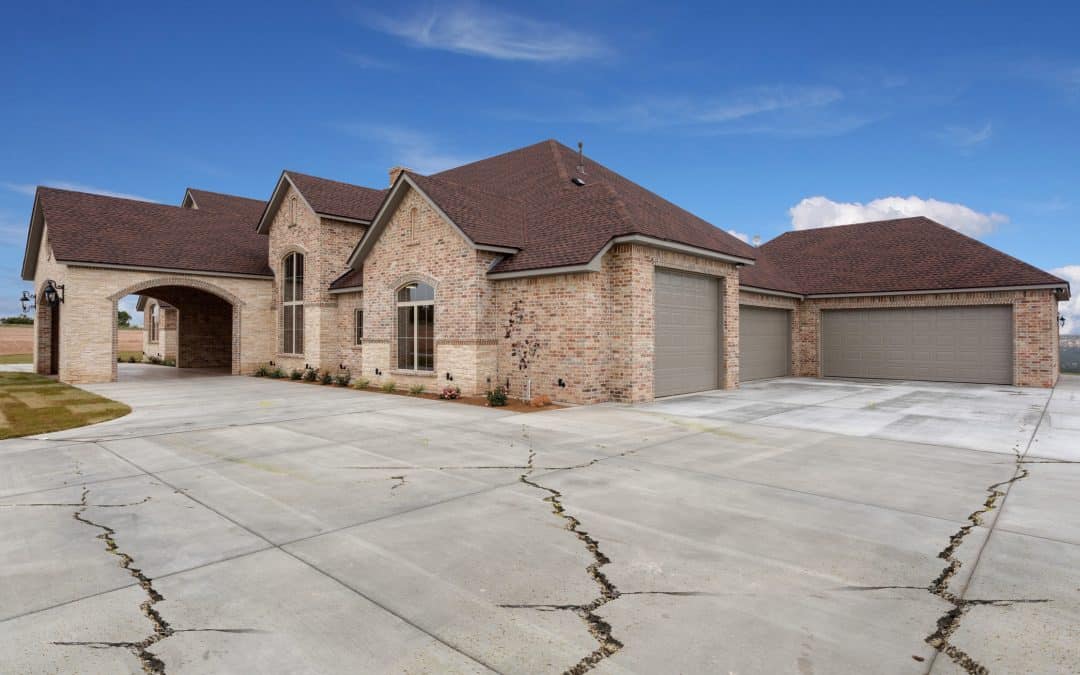A clean, smooth driveway isn’t just about curb appeal—it’s also a sign of a healthy foundation. But if you’re noticing cracks, chips, or surface damage, you might wonder: what’s going wrong? Is your driveway cracking? Here’s why it could be happening, and what you can do about it. Let’s break down the most common causes of driveway deterioration and how to prevent costly repairs down the road.
Understanding Driveway Materials
Not all driveways are created equal. Whether yours is made of concrete, asphalt, pavers, or gravel, each material reacts differently to wear and tear. Still, concrete and asphalt remain the most popular and prone to cracking.
When asking, “Is your driveway cracking? Here’s why”, start by identifying the material. Concrete driveways are durable but less flexible. Asphalt is more forgiving to shifts but deteriorates faster under certain conditions.
Common Causes of Driveway Cracks
Let’s explore the top culprits:
1. Weather Extremes
Your driveway is exposed year-round to sun, rain, snow, and freezing temps. These changes cause expansion and contraction in the surface material.
- Freeze-thaw cycles can be especially brutal on concrete.
- Direct sunlight dries out and weakens asphalt over time.
If you’re thinking, Is your driveway cracking? Here’s why, weather is often the prime suspect.
2. Poor Installation
A solid driveway starts with a solid foundation. If the contractor didn’t prepare the base correctly or skipped compaction, cracks will appear sooner than later. Uneven settling leads to stress fractures, which spread quickly.
3. Heavy Loads
Parking RVs, delivery trucks, or multiple vehicles in the same spot can stress your driveway beyond its design. Residential driveways are not meant to hold commercial weights.
This point is crucial if you live in an area with lots of visitor traffic or store large vehicles at home.
4. Tree Roots
Tree roots seeking moisture can grow underneath and lift sections of the slab. This not only cracks the surface but can make the area unsafe to walk or drive on.
Choose tree placement carefully when landscaping around your home.
5. Lack of Maintenance
Neglecting regular sealing, cleaning, or repairs allows small cracks to expand. Water seeps in, freezes, and worsens the damage. Maintenance doesn’t have to be costly, but skipping it will cost you more in the long run.
When to Worry About Driveway Cracks
Hairline cracks? Probably nothing urgent. But wider, deeper splits or ones that keep growing? Those are warning signs.
Look for:
- Cracks wider than 1/4 inch
- Pitting or flaking concrete
- Uneven slabs or sinking areas
When in doubt, consult a local contractor who can assess the situation.
Prevention Tips That Work
Now that you know the answer to Is your driveway cracking? Here’s why, what can you do to prevent or minimize damage?
- Seal your driveway regularly (every 2-3 years)
- Avoid heavy vehicles on weak spots
- Fix small cracks early before they spread
- Keep water runoff away from the edges
- Trim tree roots near the surface
Prevention is a lot more affordable than full replacement.
Repair Options to Consider
Depending on the damage, you might:
- Use crack fillers for minor issues
- Apply resurfacing compound for wide surface wear
- Hire pros for slab replacement or mud-jacking
DIY kits are available at hardware stores, but deeper damage requires expert hands.
Is Your Driveway Cracking?
A few cracks don’t mean disaster, but ignoring them could. Now that you can answer the question, “Is your driveway cracking? Here’s why”, you’re better prepared to act fast, reduce costs, and keep your property looking its best.
Don’t wait until the damage gets worse—take control now and protect your investment.
